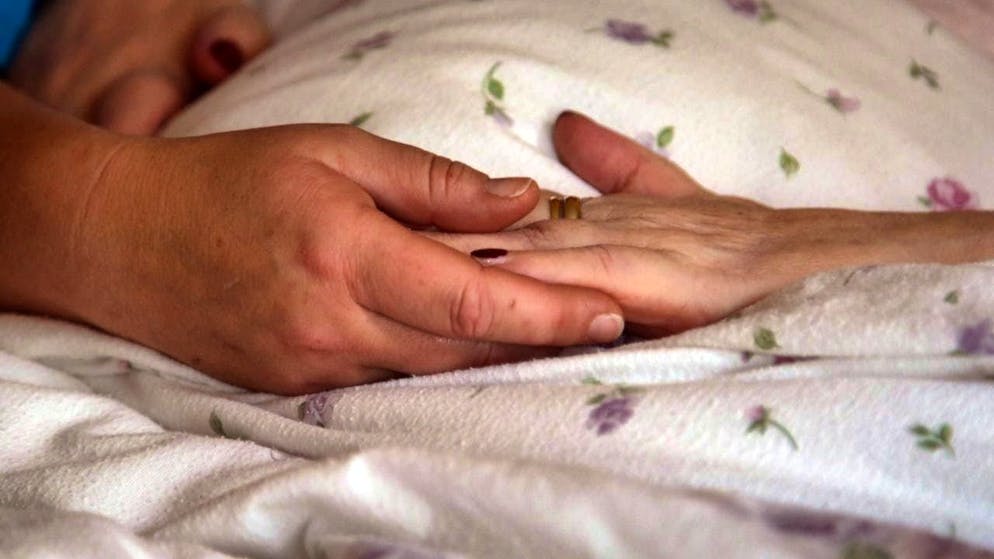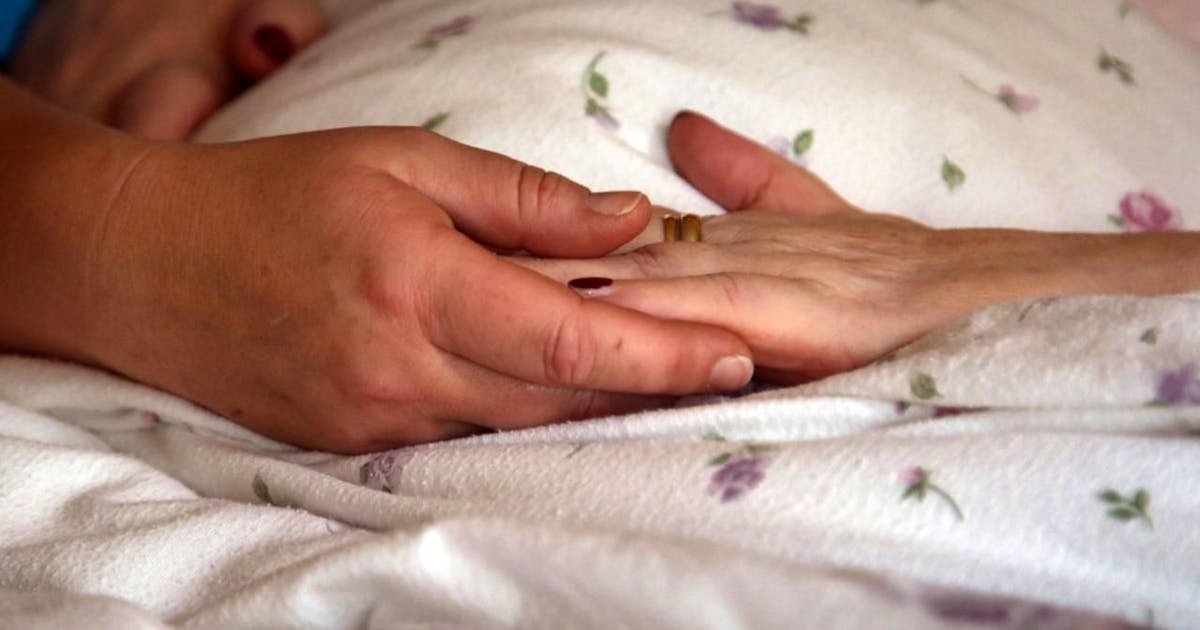
ARCHIVE – The hands of a resident lie on a bedspread in a hospice. Photo: Peter Förster/dpa-Zentralbild/dpa
Keystone
In Slovenia, terminally ill, seriously suffering patients are allowed to end their lives voluntarily with medical assistance. Following controversy, the parliament in the capital Ljubljana approved a law to this effect.
50 of the 90 MPs voted in favor and 10 against. Most of the other MPs were absent or abstained from voting.
A total of 46 votes in favor were required to confirm the law. They came mainly from the ruling Green-Social Liberal parliamentary group of Prime Minister Robert Golob. A week earlier, parliament had already given the green light for the first time, but a new vote was required following a veto by the National Council (upper chamber of parliament).
Resistance from the National Conservatives
This veto motion was also supported by the national conservative Democratic Party (DS) of former Prime Minister Janez Jansa. It demanded that Slovenia should instead improve palliative care and the hospice network and fully implement the law on long-term care. In a consultative referendum in 2024, 54.89% of voters voted in favor of the possibility of physician-assisted suicide. Parliament had rejected the proposal shortly beforehand.
Three-stage examination procedure
According to the new law, there is now a right to voluntary termination of life if the patient has exhausted all treatment options and there is no reasonable prospect of recovery or improvement. This regulation may not be applied to mentally ill patients.
Eligible patients can first submit an application for assisted suicide to their doctor. If patients still stand by their decision after a second consultation with their doctor, the doctor forwards the application to a commission for assisted voluntary euthanasia. After approval, they are provided with a lethal substance that they can take independently.
